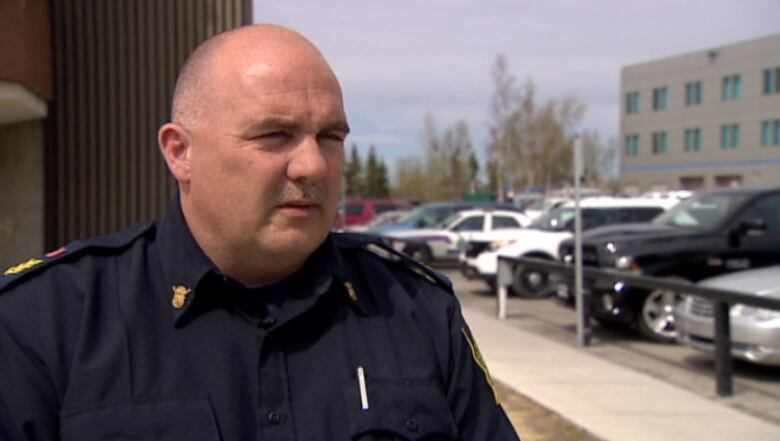2 dogs rescued from hot vehicles in Yellowknife
Both owners told officers they weren't allowed to keep their pets in their apartments
Yellowknife municipal enforcement officers are warning people not to leave pets in vehicles after rescuing two dogs from hot vehicles last week in separate incidents.
Doug Gillard, supervisor with the municipal enforcement office, says officers responded to two separate calls on May 28 and May 30.
"When officers arrived on both occasions, they found the dog to be lethargic, no water, windows rolled up," he said.
"They tried to contact the owner of the dog without any success, so they then made the decision to contact a locksmith, enter the vehicle, seize the animal and take it down to our pound services, the Great Slave Animal Hospital."

Gillard says in both instances the dog owners claim they were not allowed to keep their pets inside their apartments.
"Most of the cases we get are where somebody's out shopping and they leave the dog in the vehicle for a shorter period of time," he said.
"[In both of these cases] the owner of the dog wasn't able to keep them in their residence, so the dogs were being kept in the vehicle, which is unacceptable. It's not a place where you can house a dog."
He says people need to be aware that dogs can overheat quickly in vehicles, especially when in direct sunlight.
CBC News in Yellowknife tested a vehicle sitting in the sun and found the temperature inside rose from 18 C to 45 C in just 15 minutes.
"You may not think it's that warm out, but if the windows are up and the sun is out . . . We get a lot of sun up here, so it's basically like putting your dog in an oven," said Nicole Spencer, president of the NWT SPCA.
"If you're going to go in a shop or store or anything, take a few extra minutes and just drop your dogs home."
She says the NWT SPCA is planning a public awareness campaign this summer.
Charges were laid against the dog owner in the first incident. That owner now has the dog back in their possession.
Charges are pending against the dog owner in the second incident.
